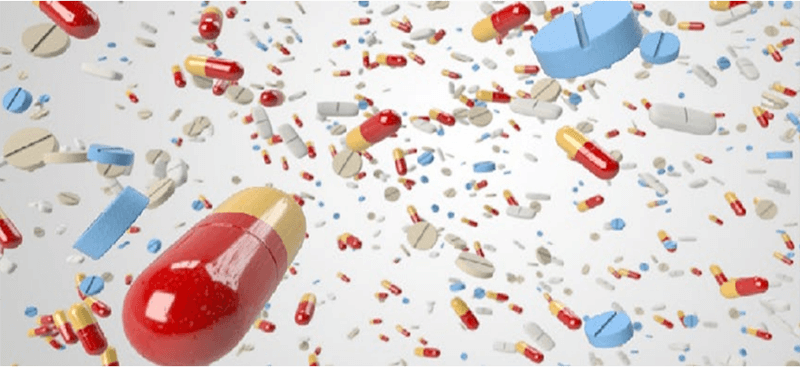- Jun 3, 2022
- b toumi
- Business Reports, Recent News, Uncategorised
- 0 Comments
New Policy In The Pharmaceutical Industry – First assessment and trends
By Rym Loucif
Key points:
Since the adoption of an action plan by the Council of Ministers on 12 July 2020, an overhaul of the regulatory framework has been launched, resulting in the publication by the Ministry of the Pharmaceutical Industry of more than 40 regulatory texts, which have a deep impact on the activities of importing, manufacturing, distributing and registering pharmaceutical products. An initial assessment of this new policy can be summarised as follows:
- A saving of nearly 800 million euros on imports by 2021.
- Manufacturer status now available to establishments outsourcing their production.
- An obligation to designate an “operator” when the marketing authorisation is held by an entity in the country of origin.
- The promotion of exports through the granting of several advantages, including the exemption from the 49/51% rule.
- The introduction of several control mechanisms aimed at ensuring a healthy and transparent functioning of the market, and detecting case of over-invoicing.

The Algerian pharmaceutical market is one of the main markets in the Middle East-Africa region with an average annual growth rate of nearly 8%.
On 31 January 2022, the Minister for the Pharmaceutical Industry (the “MoPI”) issued several orders relating to the new specifications applicable to the activity of wholesale distribution of pharmaceutical products, and to the tasks of the pharmacist technical director of a wholesale distribution establishment and an operating establishment.
On 3 February 2022, two new MIP orders relating to the application for approval of the pharmaceutical import establishment, and the duties and qualifications of the technical director of an import establishment, were published.

These new texts are part of the action plan adopted on 12 July 2020 by the Council of Ministers, which focuses on four major areas:
Ensure the continued availability of pharmaceutical products, especially essential medicines.
(ii) Put in place a regulatory system to ensure quality, efficiency and safety.
(iii) Ensure affordability of pharmaceutical products for all citizens.
(iv) Establish the national pharmaceutical industry as a strategic sector that creates wealth.
As soon as the action plan was adopted, an overhaul of the legislative and regulatory framework was launched, resulting in the publication by the MoPI of more than 40 regulatory texts, which have a deep impact on the activities of importing, manufacturing, distributing and registering pharmaceutical products. The aim of this note is to provide you with an initial assessment of this policy and highlight the recent trends
1. Import of pharmaceutical products
A new set of technical conditions for import activity was published on 14 February 2021. One of the key measures is to reserve the import of pharmaceutical products to establishments holding a manufacturer’s licence.
One of the objectives of the new specifications is also to limit imports only to essential products not manufactured locally or insufficiently manufactured locally.
This new regulation has resulted in a saving of 800 million euros on imports for 2021. Approximately 460 import programmes have been issued in 2021 representing about 1.2 billion euros.
2. Pharmaceutical manufacturing activity
The new pharmaceutical industry policy aims to promote local manufacturing in order to ensure 70% of the national needs in pharmaceutical products, and to reduce the import bill.
The new regulation allows access to the status of manufacturer not only to establishments with a production site but also to those who subcontract one or more manufacturing operations to another manufacturer.
However, it remains to be seen whether in practice these establishments approved as manufacturers, outsourcing their production and therefore not having a manufacturing site, will have the same rights as manufacturers having a site.
3. Registration of pharmaceutical products
From a regulatory point of view, from now on the holder of a marketing authorisation in Algeria can only be a pharmaceutical manufacturing establishment or an entity holding the marketing authorisation in the country of origin.
Where the marketing authorisation is held by an entity in the country of origin, it is mandatory to entrust the operation of the marketing authorisation to a local representative. This local representative must be an Algerian commercial company approved as an operator by the MoPI.
The foreign holder of the marketing authorization and the operator are jointly liable for placing the product on the market.
In terms of trends, the MoPI has announced its intention to prioritise the registration of generic medicines and similar biotherapeutic products to fight monopolistic situations.
4. Liaison offices
We have noted the absence of approval by the Minister of Commerce of liaison offices of foreign or local pharmaceutical firms, whether these offices are new or existing. The activity of prospecting for the Algerian market must be carried out within the framework of medical promotion companies duly approved by the MoPI.
5. Export promotion
Algeria wishes to strengthen the exports of pharmaceutical products, in particular to Africa.
On 25 April 2021, the country ratified the treaty establishing the African Medicines Agency (AMA), which should allow for increased trade in pharmaceuticals between African countries.
The new regulation establishes a special status for exporters, which includes a number of benefits:
(i) Possibility for foreigners to carry out the export activity at 100% while the rest of the activities remain subject to the 49/51% rule which limits to 49% the participation of the foreigner in the capital of the Algerian entity.
(ii) The export rate is taken into account in the definition of the local price of medicines.
(iii) Freedom to set the export price above the local price.
(iv) Simplified registration procedure for products intended exclusively for export.
6. Strengthening of controls
Several measures have been introduced to strengthen controls to ensure a transparent market:
(i) Establishment of an internet reporting system REQUETEMEDIC for the benefit of pharmacists and other stakeholders who are victims of illegal anti-competitive practices such as tied selling.
(ii) Installation of the General Inspectorate and joint control brigades to fight against illicit practices, stock retentions, resale at a loss, etc. Some fifteen establishments were inspected in the first half of 2021 only.
(iii) Digitisation of raw material import programmes to detect possible cases of over-invoicing.
Should you have any questions about this newsletter, please do not hesitate to contact us.
Contact with author:
Rym Loucif
AVOCATE ASSOCIÉE LOUCIF+CO
40, Rue de la Madeleine,
16035 Hydra, Algiers, Algeria
Email : [email protected]
T. (Algiers) : + 213 5 52 58 28 93
T. (Paris) : + 33 6 29 27 13 34
www.loucif-law.com
Legal note:
This article is strictly limited to personal use by its addressees and is intended to provide non-exhaustive, general legal information. It is not intended to be and should not be construed as providing legal advice.
